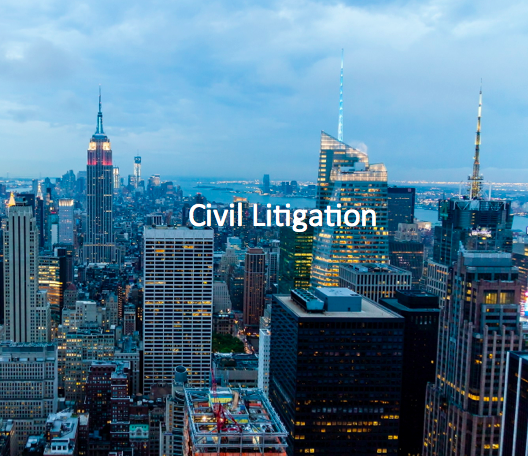There have been recent changes in the civil litigation environment, which have meant that the hedge funds trading industry has also been affected significantly. Firstly, the portfolio manager is responsible for the profits from insider trading even if they do not derive any personal financial gain from it. This was exhibited from the courts ruling regarding the case of Joseph Contorinis, who was the managing director of Jeffries & Company, Inc., and was involved in insider trading. His insider trading led to exorbitant profits and low losses for the enterprise. Even though Contorinis did not pocket the direct financial benefit, but he was still held liable because his job was linked to the well-being and performance of the fund. Further fines and penalties were also imposed on Contorinis and he was made to disgorge the unfair profit amassed by the fund. Disgorgement was seen as a suitable punishment as it prevents people from committing further frauds. Furthermore, criminal forfeiture was restricted to the amount Contorinis made for punishing the wrongdoer personally.
In another case, it was decided by the court that Morgan Stanley could recover compensation paid to the portfolio manager who was engaged in insider trading. This ruling was made on the basis of the faithless servant doctrine. Morgan Stanley was awarded restitution of 20 percent of portfolio managers compensation. Later, the firm sued the manager and demanded that they recover the entire compensation through the faithless servant doctrine. The doctrine would allow the recovery of the entire compensation in the situation where an employee has violated the contract or has been disloyal. According to Morgan Stanleys contract, insider trading was explicitly prohibited. In the end, the court ruled in the favor of the firm and the manager had to forfeit $31 million of the compensation he had received from the firm during the time.
Another court also ruled that a fund managers voluntary production of materials would amount to a waiver of the privilege. In this case, Gruss, the CFO in Zwrin Entities, was held responsible for misconduct. Zwrin Entities conducted their own investigation to report the findings to SEC. Gruss sued the enterprise for defamation and breach of contract. The enterprise was unwilling to disclose the entire interview summaries during the course of its investigation as they were protected by the attorney-client privilege. The district court ruled that the enterprise had already violated his privilege by disclosing the material to SEC and they did this to escape liability. This ruling limited the scope of the selective waiver doctrine. The enterprise was only presenting those materials to SEC that were favorable for their own purposes, and they were also withholding the complete documents that Gruss had demanded.
Regulatory Enforcement
The Private Fund Unit was established by the SEC to examine misconduct in private equity funds, as well as in hedge funds. The unit investigates how funds value their assets, disclose information, and communicate with other investors. In addition to this, SEC also claims that areas like insider trading, misrepresentation to investors, and conflict of interest were equally important.
With regards to insider trading, the most important development has been the SAC case where the organization had to bear heavy fines for criminal and civil charges. The portfolio manager at SAC was also judged guilty of insider trading that helped the company to avoid losses. The former analyst at SAC also helped the firm to make illicit profits; he received insider information from another company and misused it to increase profits and avoid losses for his own firm.
Fraudulent misrepresentation is another important area for SEC; it is where hedge funds inaccurately represent the funds performance and also do not disclose full information to their clients. A hedge fund manager named Mathew Sample lied to his clients and gave them fake documents to show that they were making profits while, in reality, the trading strategy they engaged in was failing. One third of the investors money was used for Samples personal gains.
Another case highlighted is that of Alexander Mascioli of the North Street Capital hedge fund. Mascioli had sent an offer to another firm to acquire its shares. However, the firm did not have the funding for it and was propagating false information on its website. Mascioli sent a false email to a news website, which led to an increase in stock price of the company he wanted to buy.
Related Posts:
Changes in Rules and Regulations Affecting the Hedge Fund Industry
HedgeThink.com is the fund industry’s leading news, research and analysis source for individual and institutional accredited investors and professionals






































